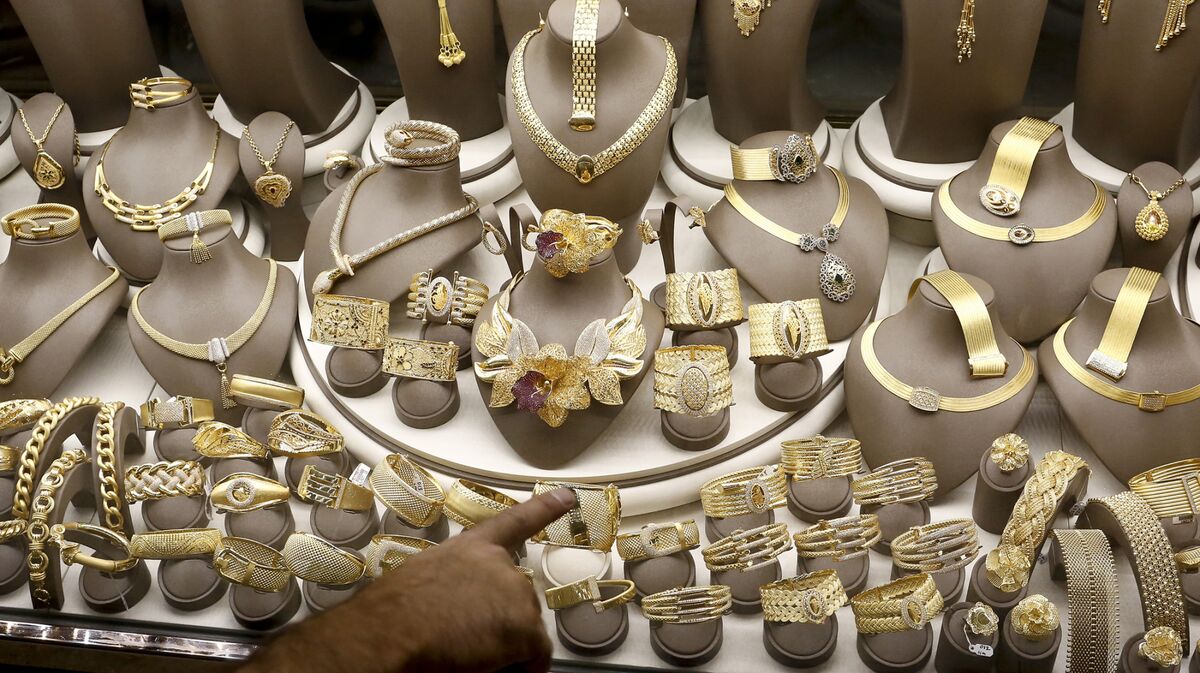Ex-Credit Suisse Banker Spent Hidden Million on Wife's Jewelry - Bloomberg

A former Credit Suisse Group AG wealth manager on trial for defrauding rich clients from Eastern Europe used money from hidden holding companies to spend nearly $1 million on jewelry for his wife, according to lawyers for the bank.
The spending spree at Chanel and another high-end Geneva retailer was part of a scheme where Patrice Lescaudron took nearly 45 million Swiss francs ($47 million) from clients through commissions and other unauthorized trades for his own benefit, Vincent Jeanneret, the bank’s lawyer, told the court Tuesday afternoon.
While Lescaudron has admitted taking money from client accounts, his victims have tried to put the focus of the trial on whether Credit Suisse should have discovered the crime sooner. But during closing arguments, Jeanneret took aim at claims that the 54-year-old banker never made money off his crimes.
“One cannot help but be struck by those numbers,” Jeanneret said. The money for the jewelry came from companies that were part of his scheme, not his own household budget, the lawyer said. His wife, Irina Lescaudron, isn’t accused of any crime.
Earlier in the day, Geneva prosecutors sought a five-year prison sentence for Lescaudron in addition to seizing millions in commissions, the banker’s Swiss home, worth 2.4 million Swiss francs, two apartments in a Sardinian resort, and more than $10 million in assets.
Chief prosecutor Yves Bertossa told the court that while the fraud represents a complex web of unauthorized trading and fake instructions spanning three continents, the case is solely about Lescaudron.
‘You Failed’
“Mr. Lescaudron, you had one responsibility: to tell your clients when you incurred losses,” Bertossa said, speaking directly to the banker who was sitting motionless on a bench in the front row of the Geneva courtroom. “You failed.”
The proposed prison sentence is half of the 10-year maximum that the court can impose. The French native has already served two years of pre-trial detention.
Attempts by the victims’ lawyers to put the spotlight on the Swiss bank during the first week of the trial have largely been rebuffed by Judge Alexandra Banna, who has reminded them that Lescaudron is charged with forgery, fraud and criminal mismanagement, not Credit Suisse.
The Zurich-based bank has said it had no idea of the French native’s deception which began back in 2007 and went undetected until 2015. Witnesses during the trial, including Lescaudron’s former boss, could not explain how his deception went undetected.
Knew the System
Celine Gautier, another lawyer for Credit Suisse, told the court the former “star” wealth manager lied, took advantage of his clients and varied his tactics to stay one step ahead of the bank’s compliance team.
“He knew the system,” said Gautier. “When the system changed, his methods changed.”
In addition to ruling on Lescaudron’s punishment, Banna must decide what to do with more than $100 million scattered across various clients’ accounts, a luxury estate on the French Riviera and other property assets that are tentatively classified as proceeds of a crime.
Bertossa told the court that some of the assets should be returned to former Georgian Prime Minister Bidzina Ivanishvili, Patrice Lescaudron’s biggest client, and Russian financier Vitaly Malkin. when the money can be linked back to their accounts.
In the case of the $33 million Riviera villa bought by a separate Russian client, Sergey Egorov, Bertossa said that must also be confiscated as it was purchased with misappropriated money.
“Mr. Egorov bought that house thanks to money from Mr. Ivanishvili,” he said.
Fake Statement
One incident clearly demonstrates Lescaudron’s fraud and forgery, Bertossa said. When he sent one of his Russian clients a statement that showed the losses Lescaudron had run up, nearly exposing his fraud, the Frenchman told him it belong to a different client, had been sent to him by mistake, and sent him a fake one, according to Bertossa.
Bertossa also slammed Lescaudron for his greed in accepting $1.5 million in “bonus” payments from Ivanishvili, that he arranged to have sent to his private accounts, which were hidden from Credit Suisse until the investigation.
“On one level this a very complicated case but on another it’s a simple one that hinges on two things,” said Bertossa. “His misappropriations and his lies.”

